Managerial Problem Solving: Impact of Course on Mindset Development
VerifiedAdded on 2022/10/04
|5
|1089
|32
Report
AI Summary
This report analyzes the impact of a managerial problem-solving course on a student's mindset and skill development. The student initially held limited views on problem-solving, focusing only on apparent issues and lacking structured decision-making processes. The course modules challenged these notions by providing insights into problem detection, analysis, and the varying nature of problems across organizations. The report highlights the importance of understanding organizational culture, brainstorming, and innovative solutions. The student now plans to apply the acquired knowledge in analyzing problems, considering potential outcomes, and making informed decisions, such as addressing declining employee performance by identifying the root causes and implementing targeted interventions. The report concludes that effective problem-solving skills are essential for managers, emphasizing the importance of addressing both the apparent and underlying causes of problems, with the course equipping the student with the necessary competencies for managerial success.
1 out of 5
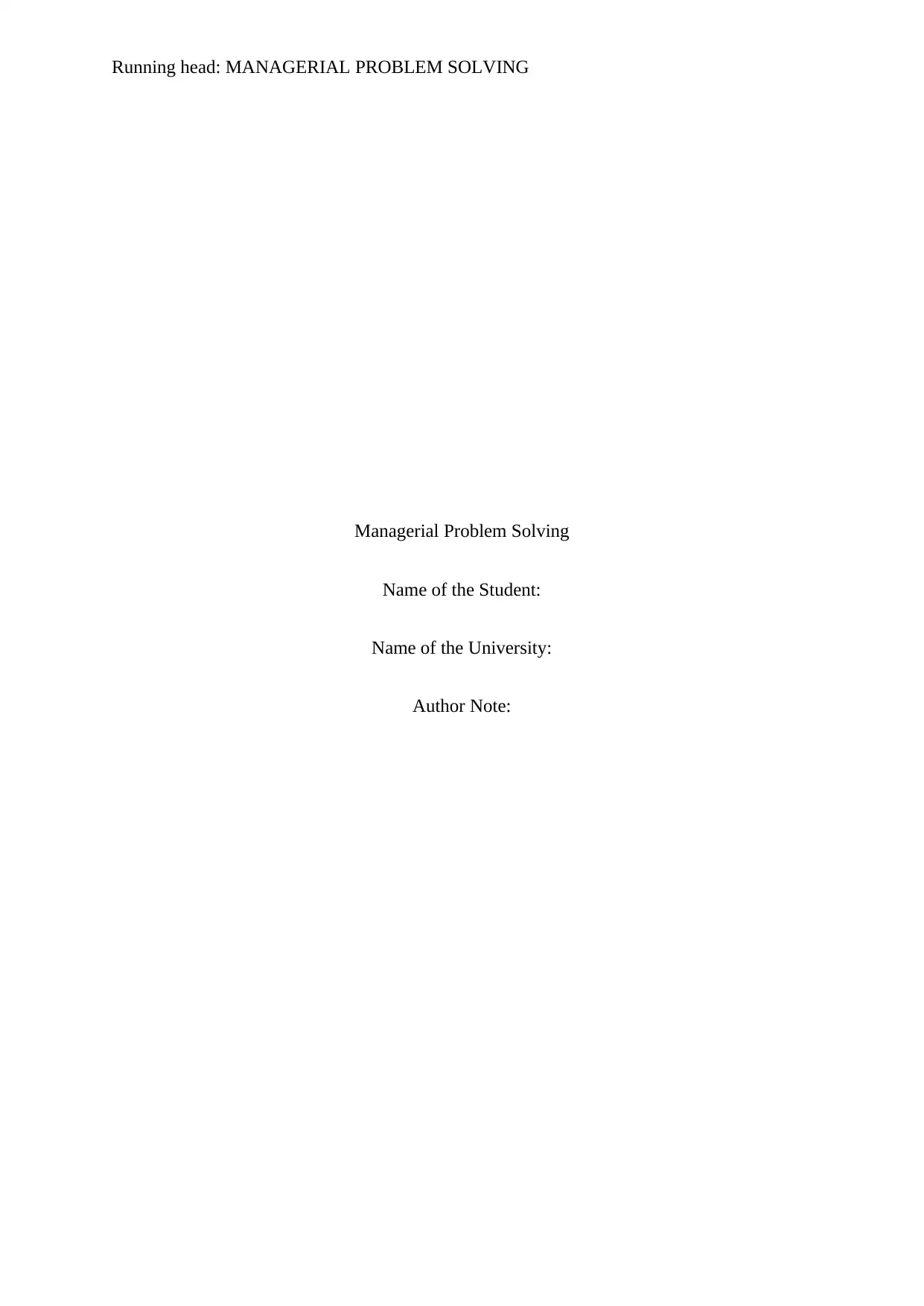
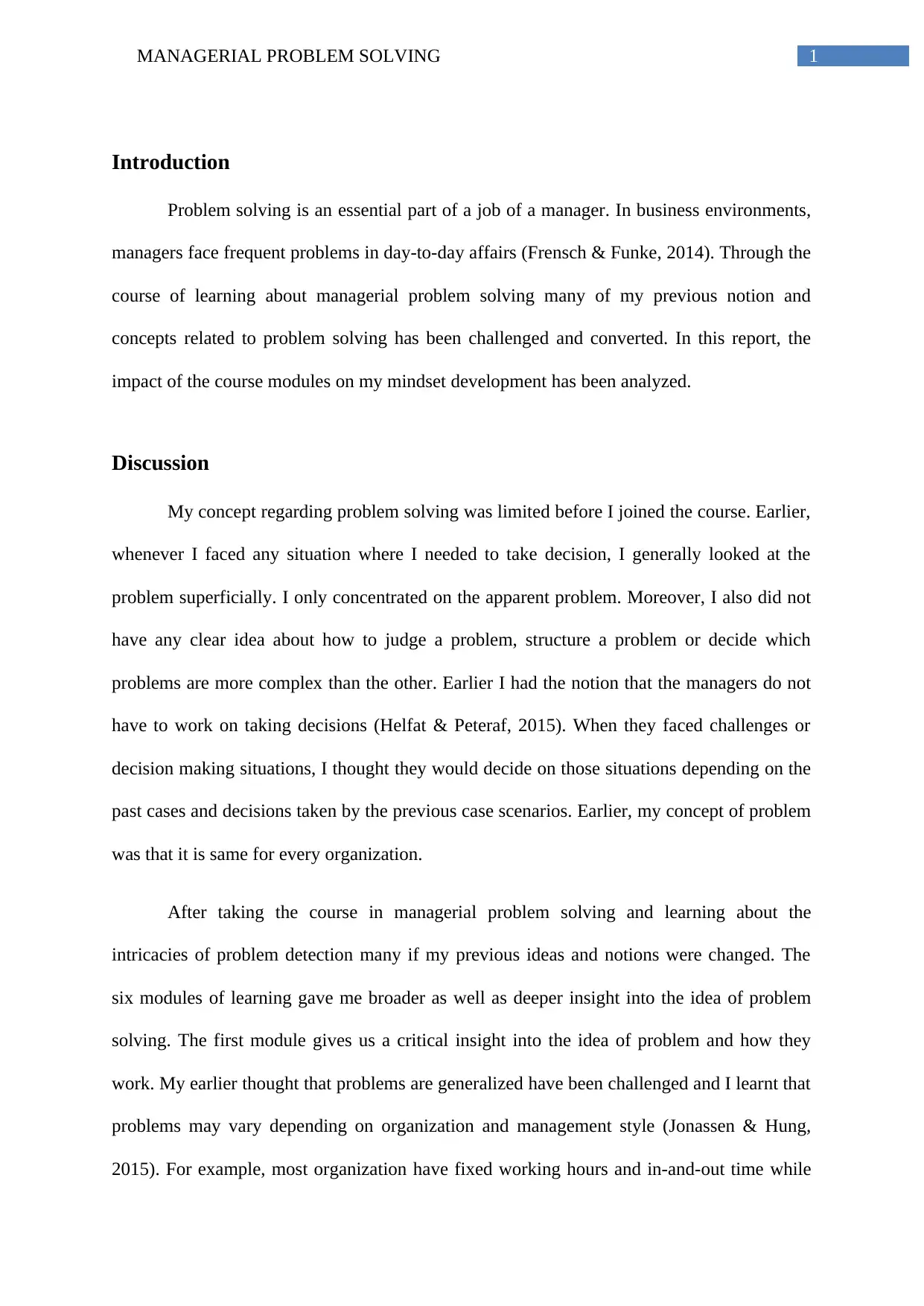
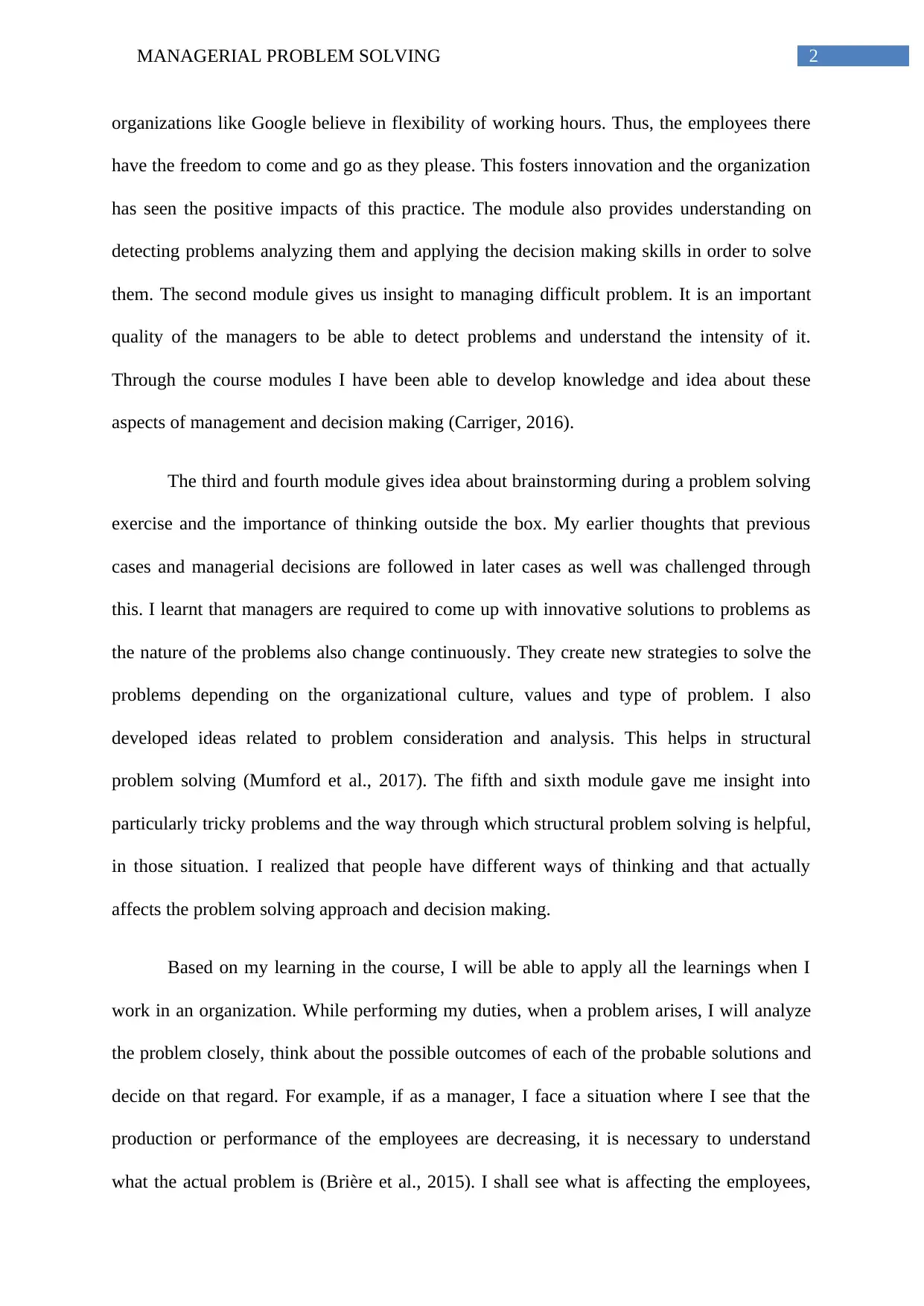
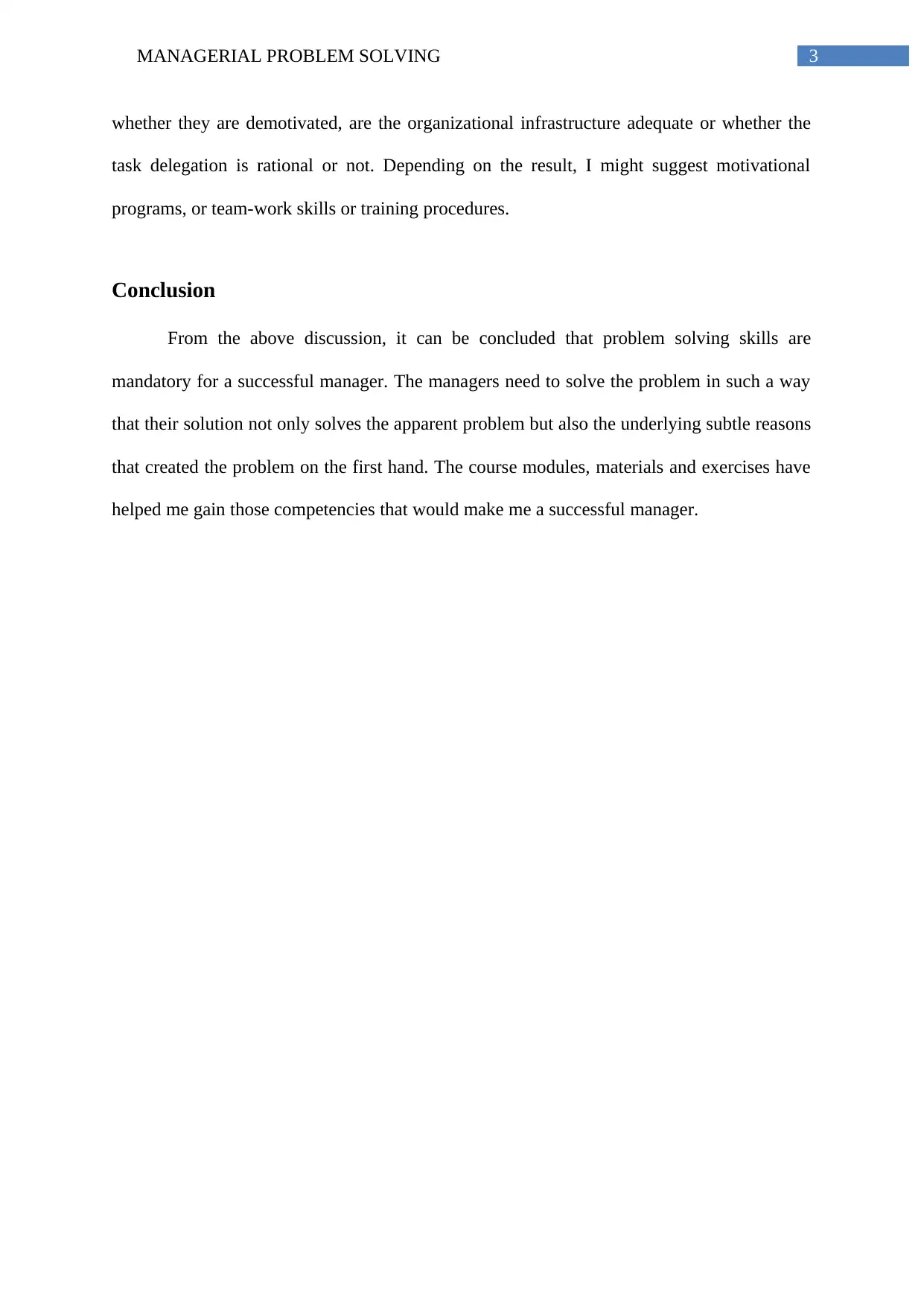
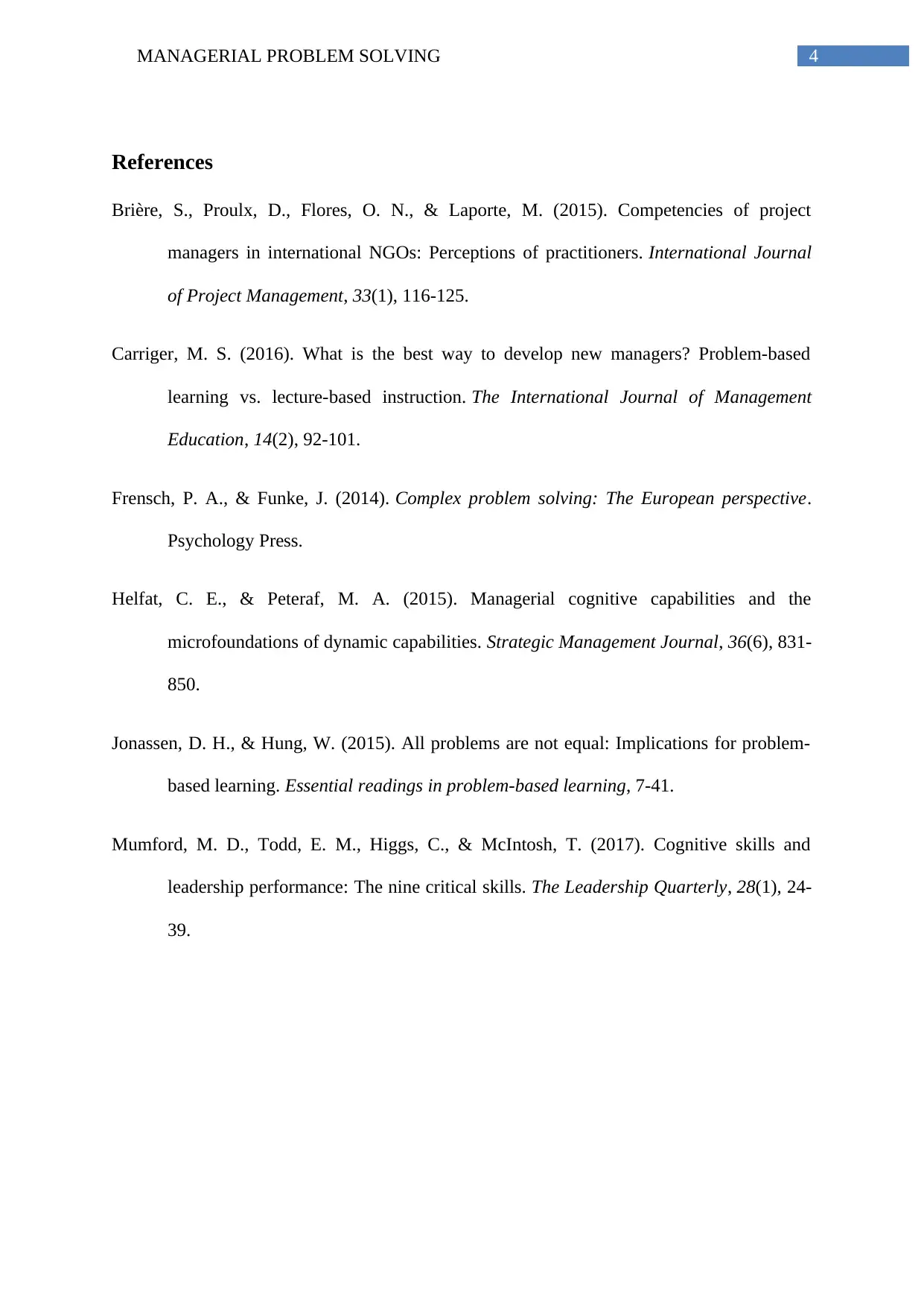






![[object Object]](/_next/static/media/star-bottom.7253800d.svg)